Schools / NGOs
PROGRAMS FOR SCHOOLS/NGOS
Aaheli Foundation provides a comprehensive 360-degree program tailored for all school stakeholders. This includes sessions for students, workshops for teaching and non-teaching staff, and parents, as well as safety systems and audits for management.
The primary goal of these programs is to improve the physical, emotional, and sexual safety of students. For more information, please select the program that interests you.
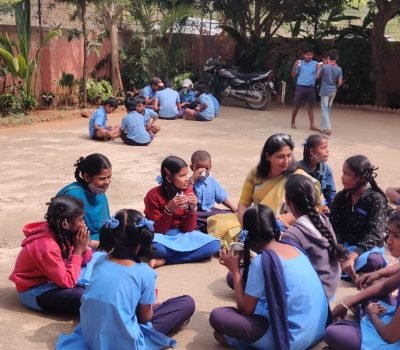
Contact Aaheli Foundation
Phone number : +91 9620293396
Email : aaheliadiba@gmail.com
The Need
Children are also socialized into norms, stereotypes, and roles associated with their gender. This biased differential treatment particularly affects those children who discover or realize that their gender identity falls outside of the binary system. In a patriarchal and heteronormative society, a system of rewards and punishments communicates to them what is acceptable and what is not.
The Premise
Children have the right to safety and to live with dignity. We believe that children have the capacity to recognize and report sexual abuse, and can heal emotionally if supported in a professional manner. Providing information and facilitating discussions on sexuality and gender equity can help children learn respectful sexual behavior without associating shame or stigma with their bodies. This education promotes gender equity in their day-to-day interactions and boosts their confidence in identifying and speaking out against abuse, including sexual abuse. Additionally, it helps adolescents navigate puberty in a healthy, safe, and dignified manner.
The WHO (2018), in recommending Comprehensive Sexuality Education, provided a list of the following benefits:
There is substantial evidence on the impact of sexuality education, highlighting its benefits:
- Sexuality education has positive effects, including enhancing young people’s knowledge and improving their attitudes related to sexual and reproductive health and behaviors.
- Sexuality education, whether provided in or out of schools, does not increase sexual activity, sexual risk-taking behavior, or STI/HIV infection rates.
Programs that promote abstinence as the only option have been found ineffective in delaying sexual initiation, reducing the frequency of sex, or decreasing the number of sexual partners. Conversely, programs that combine a focus on delaying sexual activity with other content are effective.
‘Gender-focused’ programs are significantly more effective than ‘gender-blind’ programs in achieving health outcomes such as reducing rates of unintended pregnancy or STIs.
Sexuality education has the greatest impact when school-based programs are complemented by the involvement of parents and teachers, training institutes, and youth-friendly services.
Developing the curriculum – basis, and principles

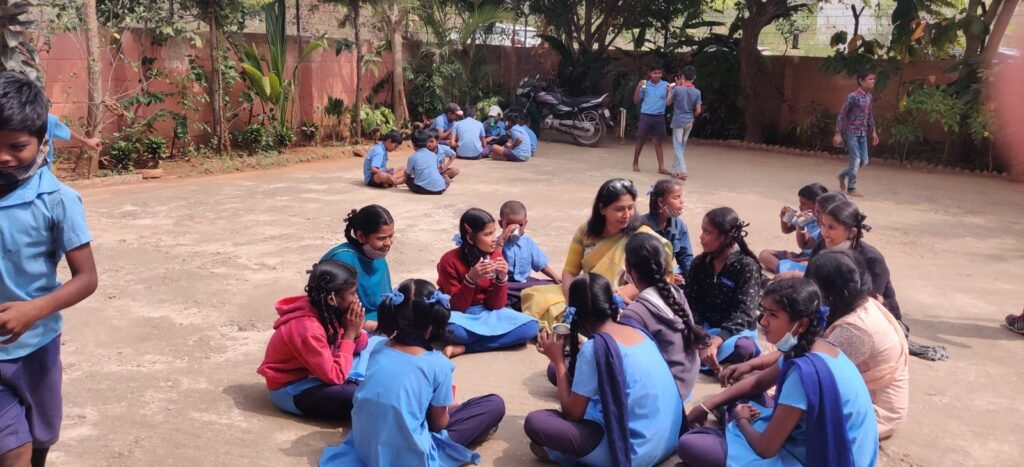
Aaheli Foundation follows International Conventions and National Laws and Policies
- Best Interest of the Child
- Principle of Safety
- Confidentiality
- Child Participation
- Equality and Non-Discrimination
Aaheli Foundation promotes gender equity, sexuality, and personal safety education with the aim of creating safer spaces and preventing sexual and gender-based violence against children and adults. We offer a comprehensive 360-degree program for all stakeholders in a school. All workshops described here address one or more of these topics, with the objective of creating greater awareness and equipping participants with the skills to address related issues effectively
AWARENESS/ CAPACITY BUILDING PROGRAMS
For school students
In India, comprehensive sexuality education remains uncommon in schools, despite its crucial benefits. According to UNESCO, this education empowers young people to safeguard their health, well-being, and dignity by equipping them with essential knowledge, attitudes, and skills. Contrary to misconceptions, studies demonstrate that it does not provoke sexual behavior; instead, it delays sexual activity and encourages responsible sexual behavior.
Despite recommendations in documents such as the 2013 Report of the Committee on Amendments to Criminal Law and the CBSE Handbook on 21st Century Skills 2020, comprehensive sexuality education has yet to be integrated into school curricula nationwide.
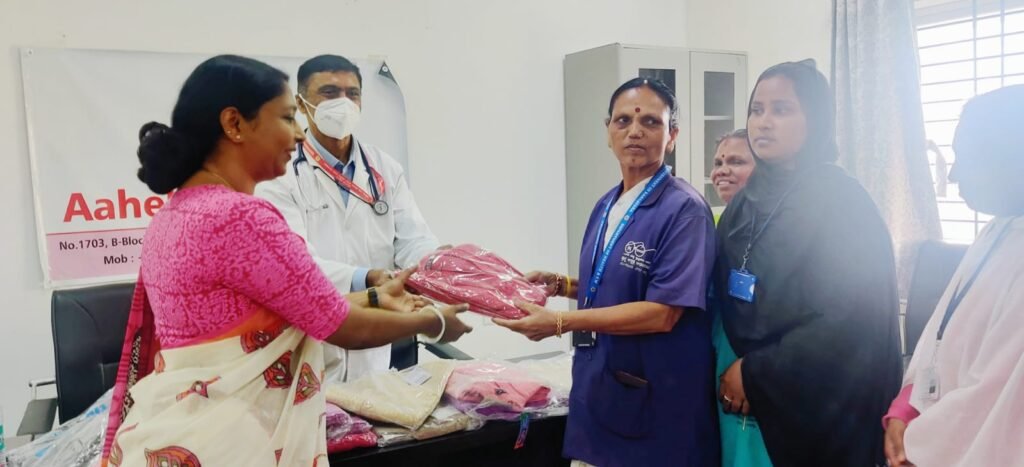
Gender Equity, Sexuality and Personal Safety Program for School Students
Aaheli Foundation offers a comprehensive Gender Equity, Sexuality, and Personal Safety program for students from grade 1 through grade 12. This program utilizes Life Skills and Restorative Approaches as part of a school-based prevention and personal safety series. The curriculum is carefully designed to be age-appropriate and evolves to address the growing safety needs of children as they progress through school.
The primary focus of the program is to enhance the physical, emotional, and sexual safety of students using a unique, scientific, and values-based approach developed by Aaheli Foundation’s founders, Dr. Sangeeta Saksena and Dr. Shaibya Saldanha. Trained Aaheli Foundation facilitators, who have completed over 100 hours of facilitation training including a course on ‘Demystifying Sexuality’, conduct this program.
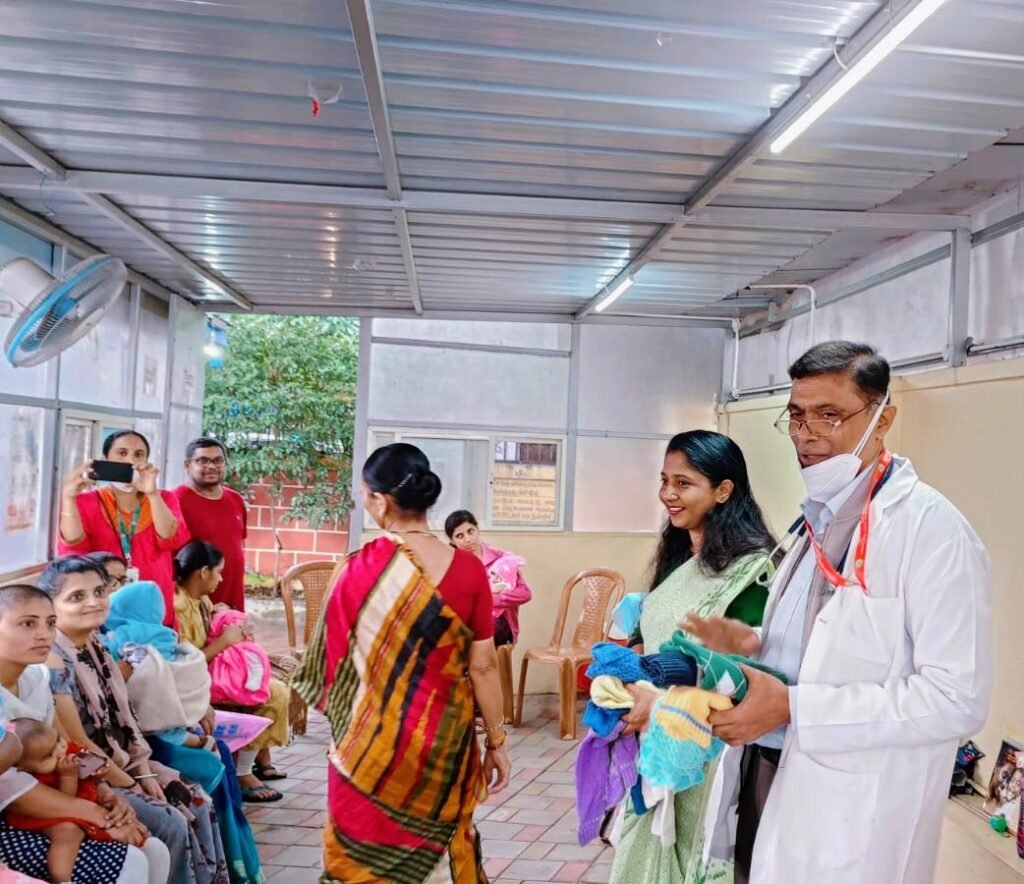
Details of topics covered:
Regarding reproductive functions, children’s questions are answered respectfully, authentically, and based on current scientific understanding. This approach avoids religious influences and uses language that children can comprehend.
Additionally, the Suvidha project addresses the specific needs of children with disabilities, ensuring inclusivity in Aaheli Foundation’s educational initiatives.
Aaheli Foundation’s Comprehensive Sexuality Education is presented to students from grade 5 onwards. We encourage respectful, open discussion around all topics related to gender and sexuality. We discuss acceptance, inclusion and respect for each other’s rights. Responsibility and accountability for one’s actions is emphasised. The Suvidha project caters to the needs of adolescents with disabilities.
Enhancing Self esteem and Body Image: Aaheli Foundation recognizes that sexuality is an integral part of one’s being. One’s self esteem and body image impact how one experiences and expresses their sexuality and vice-versa. Sexual experiences, especially abuse, can adversely affect these aspects of one’s life as well. A strong self esteem and respectful behaviour towards others can help cultivate a culture of safety and dignity for all. Hence our curriculum emphasises these two topics as well.
For school staff – teachers, non-teaching staff, and management

- POCSO and personal safety – 3 hours – This workshop aims at creating awareness of the dynamics and prevalence of child sexual abuse and the legal and social responsibilities of adults in the prevention and management of CSA. Participants will also be guided to download and use the Surakshith app which is then available as a ready reckoner for anyone dealing with such situations. A similar awareness session is recommended for support staff in the vernacular.
- Child sexual development and personal safety education – 3 hours
For teachers of children up to 7 years of age
Discussion includes normal sexual development, responding to the socio-sexual play, and how to be positive and affirming while keeping children’s safety and social norms in mind. Participants also discuss how to answer questions on sexual activity, sex differences, gender, pregnancy, and childbirth in an age-appropriate and culturally relevant manner. Personal safety rules are outlined and participants become aware of the day-to-day opportunities they can avail to support children in learning personal safety rules and personal safety guides.
- Understanding the development of gender identity and sexuality during adolescence – 6 hours
Gender identity, experience, and expression of sexuality intensify during adolescence. In the absence of regular healthy discussions about these with safe adults, teenagers become vulnerable to negative influences or misinformation through media and the internet. It is important that teachers learn to manage day-to-day situations that arise in these contexts in a value-based non-judgmental manner and thereby supplement Aaheli Foundation’s sexuality and personal safety sessions. - Preventing and minimizing the impact of bullying – 6 hours
Schools are spaces where children are learning to socialize with other children and adults. As part of this developmental phase, they are also experimenting with the use of power and sometimes imitating authoritative or punitive behaviours they have seen or learned elsewhere. These behaviours can be disruptive to the learning environment and cause the targets of bullying and the bully significant harm. This workshop is designed to help teachers understand the dynamics of bullying and counter them in a restorative manner, that builds accountability and responsibility, builds empathy and enhances the socio-emotional learning of all parties involved.
For Parents
Parents of children in primary school (class 1-4)
The main concerns of raising a child during these years of growing up are to enable the child to exercise some level of judgment, follow certain safety guidelines and communicate with the parents and other adults their needs, fears, concerns, and know how to ask for help. This could increase the likelihood that children will become alert to unsafe situations, know what to do when in such situations, and take appropriate measures.
- Restorative parenting – 2 hours
- Personal safety and sexual development – 2 hours
- Child abuse and laws – 2 hours
Parents of children in middle school (class 5-8)
At this age, children have become more independent and can take care of many of their daily needs themselves. When they reach puberty, they experience physiological and emotional changes, which may be quite intense for some children. Children are also asserting themselves at this age, trying to establish their identity as different from their parents.
- Restorative parenting – 2 hours
- Personal safety and sexual development – 2 hours
- Child abuse and laws – 2 hours
Parents of children in High school (class 5-8)
As teenagers grow up into young adults, children are discovering themselves and their sexuality, narrowing down their preferences and goals, and exploring intimate relationships with their peers.
- Restorative parenting – 2 hours
- Personal safety and sexual development – 2 hours
- Child abuse and laws – 2 hours
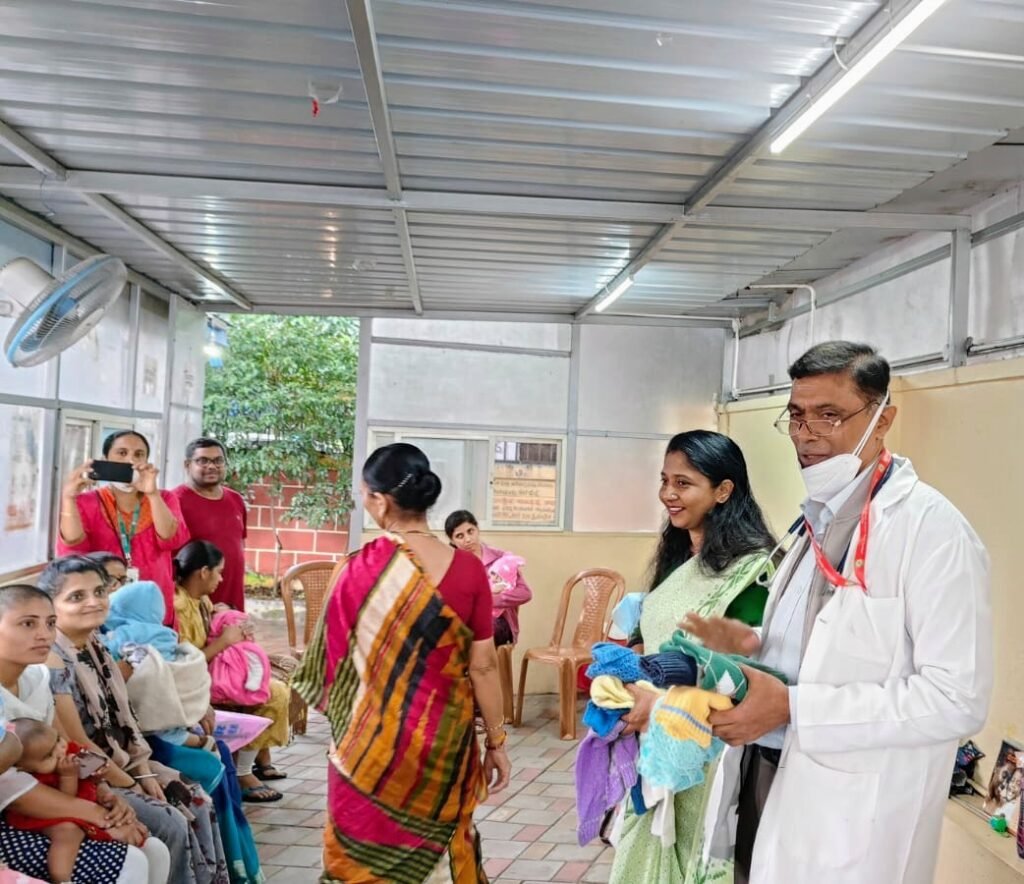
Facilitator Training Programme in Gender Equity, Sexuality, and Personal Safety Education for School Students – 105 hours
Upon completing the training, participants are equipped to evaluate the various ways in which gender bias persists and learn strategies to foster gender sensitivity and empowerment. They also gain skills to determine appropriate approaches for responding to children’s and adolescents’ questions about reproductive and sexual health, as well as addressing issues related to the expression of their sexuality.
Restorative Practices – training in classroom Restorative approaches
Central to Restorative Practices are values like respect for the dignity of all individuals and equality. They prove effective in promoting community building and establishing a child-friendly, safe, and positive environment within schools. Moreover, they equip the school community with the tools necessary to address conflicts as they arise.
Restorative Circles, a specific form of Restorative Practice, have proven effective in creating safe spaces within schools. These circles enable children and staff to express their thoughts and emotions openly, strengthen interpersonal relationships, enhance social and emotional learning, and develop resources at both individual and institutional levels to prevent and address interpersonal conflicts.


SUPPORT WITH SCHOOL SAFETY SYSTEMS
All children possess the inherent right to be safeguarded from any form of abuse, maltreatment, and harm. This right is fundamental and internationally recognized under the United Nations Convention on the Rights of the Child (UNCRC), to which India became a signatory on December 11, 1992.
Given that children spend a significant portion of their developmental years in schools, teachers and other adults in these settings bear a special responsibility to ensure a nurturing and secure learning environment.
In Karnataka, the State Child Protection Policy (KSCPP 2016) underscores the absolute entitlement of every child, regardless of residency or nationality, to protection from abuse, neglect, and exploitation. The policy underscores the government’s commitment to upholding this right, fostering child participation, and enabling children to thrive and develop with dignity. Members of the Aaheli Foundation actively contributed to the drafting of the KSCPP, reflecting their dedication to child welfare and protection initiatives.
Aaheli Foundation’s long association with schools and colleges, the depth of knowledge and experience of its facilitators in the field of child protection places it in a unique position to offer the following services to schools:
Support with Child Protection Policy
According to guidelines for educational institutions under the KSCPP, schools are required to establish a robust Child Protection Policy (School CPP) aimed at ensuring a safe environment and safeguarding children from abuse, harm, or exploitation. This policy serves as a declaration of the school’s commitment to protecting children and provides clear guidelines and reporting procedures.
The Child Protection Policy articulates the school’s dedication to creating a safe and positive environment for children. It demonstrates the school’s seriousness in fulfilling its duty of care and outlines the roles and responsibilities of stakeholders in safeguarding children.
This commitment to child protection should permeate all aspects of school administration and management, including staff recruitment, training, and day-to-day interactions between teachers, students, and parents. It ensures that all interactions within the school environment prioritize child safety and well-being.
Aaheli Foundation offers support by:
- Reviewing existing school Child Protection Policies
- Drafting new school Child Protection Policies as needed
Members of Child Protection Committee
The KSCPP requires every school to establish a Child Protection Committee comprising members specified in the Karnataka State CPP for Educational Institutions. It’s essential that all committee members undergo orientation on the School CPP, understanding their specific roles and responsibilities, and familiarizing themselves with the reporting and redressal mechanisms.
Aaheli Foundation offers an interactive workshop designed to raise awareness about a school’s obligations in child protection and safeguarding. The workshop covers crucial topics such as gender equity, sexuality education, personal safety, the dynamics of child sexual abuse, and the legal and social responsibilities of adults in preventing and addressing child sexual abuse.
School Safety Audit
The Aaheli Foundation conducts thorough school safety audits, ensuring a comprehensive evaluation process to enhance safety measures within schools. Here are the detailed steps involved:
Orientation Session: Aaheli Foundation conducts an orientation session for school management to explain the audit process and familiarize them with the Karnataka State Child Protection Policy (KSCPP) standards.
Documentation Review: Aaheli Foundation checks the school’s documented policies, procedures, and actions related to student safety, using a comprehensive checklist provided by the foundation.
Focused Group Discussions: Discussions are held with school management, teachers, non-teaching staff, and students to assess their knowledge of standard operating protocols and identify any current safety issues.
Meetings with Safety Committee and Counselors: Meetings are conducted with the school safety committee and counselors to review how previous incidents have been managed and to evaluate related documentation.
Standard Operating Procedures: Aaheli Foundation discusses standard operating procedures with school staff and management, ensuring clarity and alignment with best practices.
Through these audits and recommendations, Aaheli Foundation collaborates with schools to create safer environments for students, promoting adherence to regulatory standards and fostering a culture of safety and well-being.
Let's change the world, Join us now!
Be a catalyst for change! Join AAHeli Foundation in our mission to empower and transform lives. Together, let’s create a brighter, inclusive world for all.
